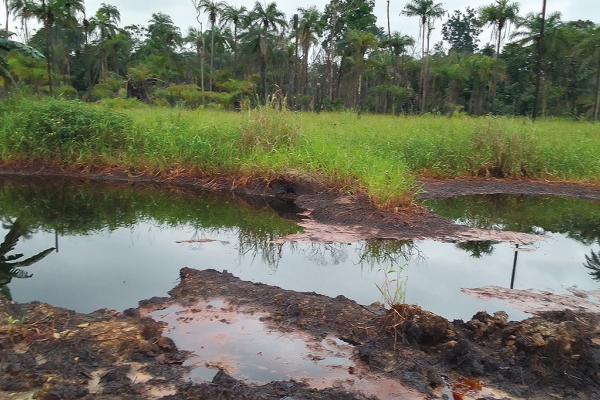Kevin Woke and Elfredah Kevin investigated the case of the Italian oil company Eni which continues to pollute three areas in the Niger Delta, while harming the health and the land of local communities. Eni’s pipeline has spilled oil where it operates, with little or no recompense to offset the impact on the population.
Kevin was listening to a local radio programme when he heard complaints from people about the oil spillages. After he did some research on the issue with his colleague Elfredah, they realised that the majority of spillages were not recorded by the National Oil Spill Detection and Response Agency.
They kept reading report after report, eager to find any available information. Eventually, they were able to find some documents on the governmental website, describing previous incidents that connected Eni’s activities in Nigeria with pollution. They also came across clues they could further ask the locals about, such as death certificates and reports on protests.
When planning to talk to the communities which are associated with danger and instability, protection was key. The most remote community they were planning to visit does not even allow visitors to enter. The thought of cancelling the trip did cross the journalists’ minds. However, Kevin and Elfredah decided to proceed. To them, it was a risk that needed to be taken. Eventually, with the help of local journalists and fixers, they managed to secure permission to enter the village.
Barricades around pipelines, restrictions and vigorous security personnel is the reality they saw when they reached the affected communities after a long journey. And farmers, whose movement is being monitored, could not reach their farms.
While Elfredah and Kevin were interviewing local families, they were told about a spillage that was happening in that particular moment nearby but could not go too close. “An explosion could occur, so I took a picture from afar,” commented Elfredah.
After observing the site carefully, they noticed that the river had a presumably clean side, where people were drinking from, and a side which had a layer of grease on the surface. Elfredah and Kevin collected samples from both sides, and soil from spots near the pipeline and sent them to the University of Port Harcourt's science lab for examination. The results showed that all samples had high levels of crude oil, confirming their hypotheses.
They had finally gathered sufficient evidence to expose the company's greenwashing and deception. The team compiled a video of interviews, and wrote a story which included a list of their supporting documents.
When they reached out to Eni for a statement, the company refuted the allegations and claimed that the oil spills resulted from sabotage. No action has been taken yet.
Elfredah and Kevin feel that this issue is underrepresented in global media, while local media in Nigeria cannot afford to cover these types of stories.
“I feel relieved that we have reported these wrongdoings, but I am disappointed in the government and the oil company because they choose to turn a blind eye. This is where I feel bad; for the victims who need justice”, said Kevin.
